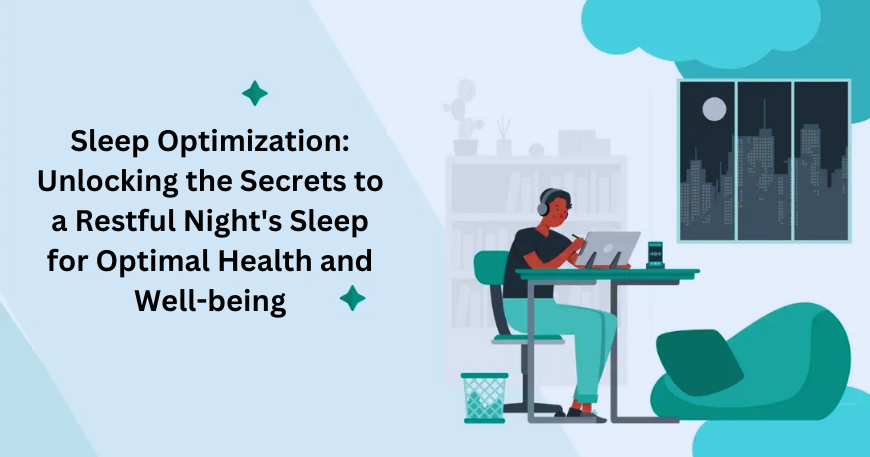Introduction: Good sleep is essential for our overall health and well-being, yet many of us struggle to get the quality rest we need. In this blog post, we’ll delve into the world of sleep optimization and share practical tips and insights to help you achieve a restful night’s sleep. Say goodbye to tossing and turning, and unlock the secrets to rejuvenating sleep for enhanced physical, mental, and emotional well-being.
- The Importance of Quality Sleep: Highlight the crucial role sleep plays in our physical and mental health. Discuss the benefits of good sleep, including improved cognitive function, immune system support, mood regulation, and increased productivity.
- Understanding the Sleep Cycle: Explain the different stages of the sleep cycle, including REM and non-REM sleep, and their importance in achieving a well-rounded and restorative sleep experience. Provide an overview of the optimal sleep duration for different age groups.
- Creating a Sleep-Friendly Environment: Explore the elements of a sleep-friendly environment, including comfortable bedding, a dark and quiet room, and a cool temperature. Offer tips for optimizing your bedroom to create a peaceful and relaxing sleep sanctuary.
- Establishing a Consistent Sleep Schedule: Highlight the significance of a consistent sleep schedule in regulating your body’s internal clock. Discuss the benefits of going to bed and waking up at the same time each day and provide strategies for establishing a healthy sleep routine.
- Prioritizing Sleep Hygiene: Discuss the importance of practicing good sleep hygiene habits. Provide tips for winding down before bed, such as avoiding stimulating activities, limiting exposure to screens, and engaging in relaxing bedtime rituals.
- Optimizing Your Sleep Environment: Discuss the impact of external factors on sleep quality, such as noise, light, and air quality. Offer solutions for minimizing disruptions, such as using earplugs, blackout curtains, white noise machines, or air purifiers.
- Managing Stress and Relaxation Techniques: Explain how stress and anxiety can disrupt sleep and provide strategies for managing stress to promote better sleep. Introduce relaxation techniques like deep breathing exercises, meditation, or guided imagery to help calm the mind before bedtime.
- Diet and Sleep: Discuss the connection between diet and sleep quality. Highlight foods that promote good sleep, such as those rich in magnesium, tryptophan, and melatonin. Provide recommendations for avoiding foods and beverages that can interfere with sleep, such as caffeine and heavy meals before bed.
- Regular Exercise for Better Sleep: Explain the relationship between physical activity and sleep quality. Discuss the benefits of regular exercise on sleep and provide recommendations for incorporating exercise into your daily routine.
- The Role of Technology in Sleep Optimization: Address the impact of technology on sleep quality. Discuss the negative effects of screen time before bed and offer strategies for minimizing the impact of technology on sleep, such as establishing device-free periods and using blue light filters.
- Seeking Professional Help: Acknowledge that persistent sleep issues may require professional intervention. Encourage readers to consult with healthcare professionals if they continue to struggle with sleep despite implementing sleep optimization strategies.
Conclusion: Sleep optimization is a key component of overall health and well-being. By prioritizing quality sleep, creating a sleep-friendly environment, practicing good sleep hygiene, and managing stress, you can unlock the secrets to a restful night’s sleep. Embrace the power of sleep optimization and experience the transformative benefits of rejuvenating sleep for enhanced physical vitality, mental clarity, and emotional balance. Get ready to wake up refreshed and ready to conquer the day!






